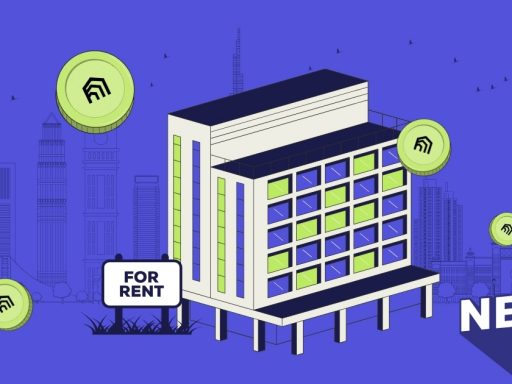The real estate sector is experiencing a transformation driven by a new investment model: fractional real estate investing. Fractional ownership in real estate is making ownership of high-end property more accessible, allowing a range of investors to co-own premium properties that were once out of reach.
In this blog, I’ll explore how:
Firstly, What is Fractional Ownership in Real Estate?
Imagine owning a share of a luxury apartment or a prime commercial space in a top location, but without needing to invest a large sum upfront. Instead, you purchase a fraction of the property, making the initial investment more manageable.
Fractional ownership refers to a collaborative investment strategy where multiple parties share the expenses of a high-value asset, such as a luxury yacht or an upscale vacation property. Each investor retains specific ownership rights and entitlements to the asset based on their contribution.
Fractional ownership in real estate allows individuals to enjoy the benefits of owning premium assets without bearing the full financial burden alone. It offers an opportunity for individuals to invest in properties that would typically be beyond their budget.
Key Takeaways:
- Fractional ownership allows multiple parties to share the expenses of high-value assets in real estate.
- Investing in fractional ownership provides an opportunity to own premium assets without bearing the full financial burden.
- It allows individuals to invest in properties that would typically be beyond their budget.
- Each investor retains specific ownership rights and entitlements based on their contribution.
- Fractional ownership in real estate offers the potential for investment growth and shared costs.
Traditional vs Fractional Real Estate Investment
To understand the appeal of fractionalized real estate, let’s compare it with traditional real estate investment:
- Traditional Real Estate Investment comes with these traits:
- High Entry Barrier: Buying a property outright usually requires a lot of capital, which can be a major hurdle for many.
- Limited Diversification: Investors are often limited to owning fewer properties due to the high costs involved.
- Management Responsibility: Property management—handling tenants, maintenance, and repairs—falls entirely on the owner.
- Fractional Real Estate Investment delivers these:
- Lower Entry Cost: Investors can buy high-value properties with a much smaller initial investment.
- Greater Diversification: It’s easier to spread investments across different properties, reducing risk.
- Less Management Hassle: The platform managing the fractional ownership typically handles all the day-to-day property management tasks.
Factors to Consider Before Investing in Fractionalized Real Estate
Before investing in fractional ownership, it’s important to consider some factors to ensure it aligns with your investment goals and financial stability.
- Financial Stability: Assess your financial situation and check if you have the necessary funds. Fractional ownership involves sharing costs for maintenance, management fees, property taxes, and other expenses.
- Long-Term Commitment: Fractional ownership involves a long-term commitment to the property. It’s essential to evaluate your long-term investment goals and assess if you are willing to hold the asset for such a period. Consider your future plans and the property’s expected appreciation or rental income.
- Risks and Benefits: Consider factors such as the property’s location, market trends, risks in the local real estate market, and the terms and conditions of the ownership agreement.
Tips for First-Time Investors in Fractional Real Estate

- Start Small and Diversify: Begin with a modest investment and consider spreading your funds across different properties to minimize risk. Estate Protocol lets you buy properties with as little as $50. It also allows investors to invest in international properties, helping them build a diversified portfolio.
- Do Your Research: Look into the platform, its fees, and the specific property you’re interested in. Estate Protocol, a platform built on Arbitrum, empowers global investors to tokenize real estate assets through cryptocurrencies and benefit from quicker transactions and lower fees without compromising on security.
- Understand Exit Strategies: Know how and when you can sell your share if needed.
How to Invest in Fractional Real Estate
To get started with fractional real estate investing, follow these steps:
- Choosing the Right Platform: Research platforms that facilitate investment in fractionalized real estate. Estate Protocol is one such platform.
- Selecting a Property: Evaluate different properties based on factors like location, rental income potential, and long-term value appreciation.
- Making the Investment: Decide how much you want to invest and buy your share online. The process is straightforward, with platforms like Estate providing all necessary legal agreements.
Once you’ve invested, you become a co-owner of the property.
Tax Implications of Investing in Fractional Ownership
The tax implications of fractional ownership depend on factors like income, property expenses, and local regulations. Here’s a breakdown:
Income Tax
- If the property generates rental income, each co-owner is responsible for declaring their share of that income on their tax returns. For example, if you own 25% of a property, you are responsible for 25% of the rental income for tax purposes.
- This income is taxed at the individual’s tax rate.
Property Taxes
- Property taxes are divided among the owners based on their ownership percentage. Each owner is responsible for paying their share of the property taxes.
- Failure to pay property taxes can lead to penalties, so this responsibility is critical to maintaining ownership rights.
Capital Gains Tax
- If the property appreciates in value and is sold, capital gains tax may apply. Each co-owner is taxed on their portion of the profit. The tax rate will depend on factors such as how long the property was held (short-term vs. long-term capital gains).
- Some jurisdictions allow for deductions or exemptions if the property is a primary residence.
Deductible Expenses
- Maintenance, repairs, and improvements to the property might be deductible from income for tax purposes. Each owner can claim their share of these expenses, but specific tax treatment depends on the nature of the expenses and local tax laws.
- Mortgage interest or property-related loans may also be deductible, but this depends on the jurisdiction and the structure of the ownership.
Tax Variations by Jurisdiction
- Tax laws governing fractional ownership vary by country and even within regions of the same country. For instance, local real estate laws, tax incentives, or regulations on investment properties may affect how co-owners are taxed.
- Some countries may require the registration of ownership agreements, and zoning regulations may impact the ability to rent out the property or use it for specific purposes.
Legal Documentation and Compliance
- Properly documenting fractional ownership is crucial. Legal agreements include terms regarding usage schedules, dispute resolution, and management responsibilities. Compliance with local real estate and zoning laws is necessary to avoid legal complications.
- It’s important for all owners to consult with tax professionals to ensure compliance and optimize tax obligations.
Benefits of Fractional Real Estate Investment
- Affordability: It allows you to get into high-value real estate with a smaller financial commitment.
- Diversification: You can spread your investments across multiple properties, reducing the risk associated with owning just one.
- Networking Opportunities: Being part of a fractional investment platform connects you with other like-minded, forward-thinking investors and provides access to expert advice.
- Deeded Ownership: One of the benefits of fractional ownership is the ability to have deeded ownership rights to the property. This means that investors have legal proof of their ownership share, which can offer benefits such as property appreciation and a sense of security in their investment.
- Shared Upkeep and Maintenance Costs: With fractional ownership, investors share the costs of upkeep and maintenance, reducing their financial burden. This shared responsibility ensures that the property is well-maintained and taken care of, without the sole responsibility falling on one owner.
Is Fractional Real Estate a Wise Investment?
Whether fractional real estate is a wise investment depends on several factors. If you’re interested in entering the real estate market at a lower cost, are comfortable with making decisions with others, and don’t mind having limited personal use of the property, fractional ownership could be a suitable option. It’s especially beneficial for those looking to diversify their investment portfolio.
However, if you value having full control over your investments, need liquid investments or find shared ownership complicated, traditional real estate investment might be a better choice.
The Bottomline on Fractional Real Estate Ownership
Fractional real estate investing is opening up new opportunities in the property market by offering a way to access high-value properties without the need for a large upfront investment. However, as with any investment, it’s important to approach it with caution, conduct thorough research, and choose the right platform. By doing so, you can take advantage of this innovative investment strategy and reap huge rewards.
Estate Protocol: A Fractional Real Estate Investment Platform

Estate Protocol is a platform that allows individuals to invest in fractional ownership of high-end properties globally, using cryptocurrencies. The aim of the firm is to democratize real estate investment by making it accessible to a wider audience through fractional ownership and blockchain technology.
- Fractional investment: Investors can purchase a portion of a property rather than the entire asset.
- Global investment: Offers properties in various countries, allowing for diversification.
- Rent generation: Investors can earn rental income from their property shares.
- Blockchain technology: Utilizes blockchain to tokenize real estate and ensure transparency.
- Curated properties: Provides a selection of properties after due diligence.
- Low investment threshold: Investors can start with as little as $ 50.
Follow Estate Protocol on X and read our blogs to stay updated about the real estate market. Start your journey of owning tokenized real estates today.
FAQs
- How does fractional ownership differ from timeshares?
Fractional owners own a portion of the property whereas timeshares grant interval ownership, which means they allow use of the property for a specific period but do not provide ownership rights.
Fractional ownership properties generally have fewer owners and offer more flexibility and ownership benefits compared to timeshares.
- How does fractional ownership offer diversification within real estate?
By investing in fractional ownership across different properties or locations, investors can spread their risk and maximize returns. Fractional ownership allows individuals to diversify their real estate investments without needing to purchase multiple properties independently.





